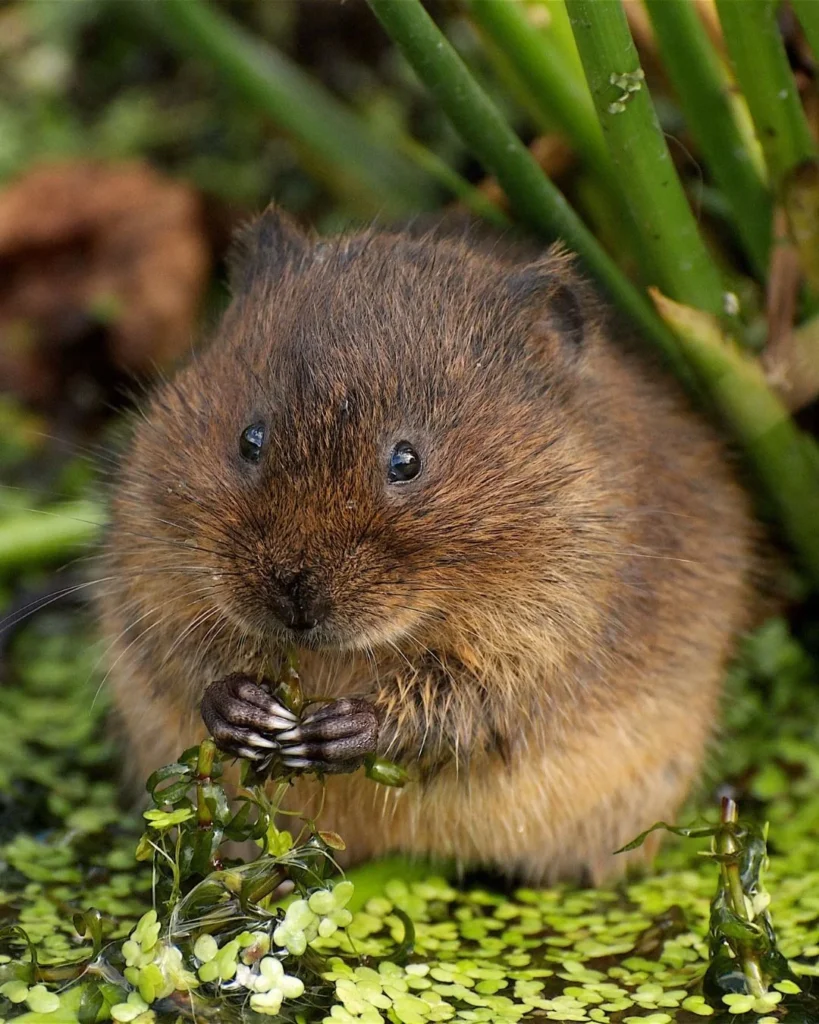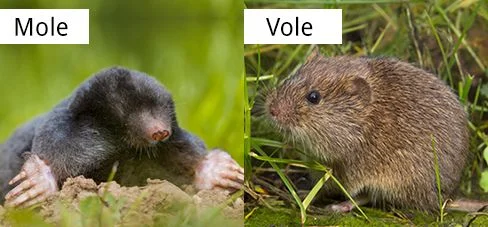Voles and mice, two common small rodents in Canada, are frequently confused by homeowners. While they may look similar at first glance, these two creatures have distinct differences in appearance, behavior, and habitat. Understanding these differences is crucial for effective pest control, especially if you’re dealing with an infestation in Toronto, Vancouver, Calgary, or other Canadian regions.
What Is a Vole?
A vole is a small rodent often mistaken for a mouse due to its size and fur-covered body. However, voles belong to the Arvicolinae subfamily, which includes muskrats and lemmings. Unlike mice, voles have stout bodies, short tails, and rounded faces, making them look more like hamsters. Common species in Canada include the meadow vole (Microtus pennsylvanicus) and the Townsend’s vole (Microtus townsendii).
Vole Images & Identification
If you’re searching for “vole images animal” or “vole pics”, you’ll notice that voles have:

- Short, furry tails (1-2 inches long)
- Small eyes and ears
- Blunt snouts
- Stocky bodies (heavier than mice)
- Brown or gray fur
They are often found in gardens, lawns, and fields, where they create burrows and surface runways in grass.
Voles vs Mice Key Differences
1. Physical Appearance
When comparing a mouse versus vole, the most noticeable difference is the tail.
- Mice have long, hairless tails (3-4 inches).
- Voles have short, furry tails (1-2 inches).
Other differences include:
- Mice have pointed snouts, while voles have rounded faces.
- Voles are stouter with shorter legs.
- Mice have larger ears and eyes compared to voles.
2. Diet & Feeding Habits
- Voles are strict herbivores, feeding on roots, bulbs, grasses, and tree bark. They are notorious for damaging gardens and lawns in Ontario and British Columbia.
- Mice are omnivores, eating grains, seeds, insects, and even household food scraps. They are more likely to invade homes and pantries in search of food.
3. Habitat & Behavior
- Voles prefer outdoor environments like fields, meadows, and backyards. They dig shallow burrows and create visible runways in grass.
- Mice adapt well to both indoor and outdoor environments. They nest in walls, attics, and basements, making them a bigger nuisance for homeowners in Montreal and Edmonton.
Are Voles Dangerous?
Unlike mice, voles do not typically invade homes, but they can cause significant damage to:
- Lawns & gardens (chewing grass roots & bulbs)
- Young trees (gnawing bark, leading to girdling)
- Crops & ornamental plants
Mice, on the other hand, pose health risks by contaminating food with droppings and urine, potentially spreading diseases like hantavirus. They also cause structural damage by chewing wires and insulation.
How to Identify Voles vs Mice
Signs of Voles
- Surface runways (2-inch-wide trails in grass)
- Chewed tree bark near the base
- Small burrow openings in soil
- Vole feces (small, pellet-like droppings)
Signs of Mice
- Mouse droppings near food sources
- Gnaw marks on furniture, wires, or walls
- Scratching noises in walls or ceilings
- Nests made of shredded paper or fabric
Effective Control Methods
For Voles
- Habitat modification: Keep grass short and remove dense ground cover.
- Exclusion: Use wire mesh barriers around tree bases.
- Traps: Live traps or snap traps can help reduce populations.
For Mice
- Seal entry points (cracks, gaps, and vents).
- Store food in airtight containers.
- Use snap traps or bait stations in high-activity areas.
Professional Pest Control in Canada
If you’re struggling with voles or mice in Toronto, Vancouver, or Calgary, IPM Pest Solutions provides eco-friendly and effective rodent control. Our experts use Integrated Pest Management (IPM) techniques to ensure long-term prevention.
Trust IPM Pest Solutions to keep your home and garden rodent-free
While voles and mice may seem similar, their behaviors and risks differ significantly. Voles are outdoor pests that damage landscapes, while mice are indoor invaders that threaten health and property. Identifying the correct rodent is the first step in effective pest management.
For reliable vole and mouse control in Canada, trust IPM Pest Solutions to keep your home and garden rodent-free.


